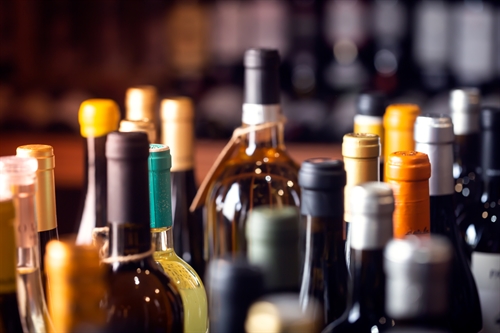When you’ve paid a bit more than usual for some special wine to mark an important day a few years in the future it makes sense to pay attention to the way you store it. The right conditions can make all the difference between the drinking experience of a lifetime and bitter, tannic disappointment.
Do you need to age your wine?
Not all wine improves with age. Some bottles are meant to be drunk up quickly. As a rule of thumb, reds last up to three years; whites last up to two years.
If you want to lay down some bottles of wine for a special occasion you should get advice from an expert wine merchant. The Wine Society has some pointers about wines which will age well.
What temperature should I store wine at?
Wines age faster if they are stored at temperatures greater than 21 degrees centigrade. And if wine gets too warm, it ends up ‘cooked’, with loss of flavour and aroma.
You might think, therefore, that the fridge at home would be a good place to keep wine as the temperature is cool and steady. But wine does best between seven and eighteen degrees centigrade. A domestic fridge at four degrees is too cool for wine.
What about humidity when keeping wine?
As well as being too cool to store wine, fridges are very drying – as anyone who lives with an individual who can’t get the hang of wrapping cheese will know. A very dry environment can damage corks in wine bottles. A damaged cork will let air into your wine bottle, which can alter aromas, generally not for the better.
An overly damp environment is just as bad for storing wine: it can leave you with mouldy corks, and the musty aroma will transfer to the wine in the bottle.
Is it okay to store wine in the kitchen?
The kitchen is generally not a good place to store wine. The temperatures fluctuate too much, and over time these fluctuations can make the wine expand and contract in the bottle, pushing on the cork and leading to seepage.
Wine also needs to be protected from strong smells, as odours like garlic or cleaning product fragrances can work their way through the cork.
Good kitchens are well lit, and bright lights are not good for wine. Sunlight, in particular, can degrade wine.
Keep wine still
Yet another reason not to store wine in the fridge: vibrations can stir up sediment and alter the wine’s structure, both of which will have an impact on your drinking pleasure. Wine stored long term should be moved rarely.
What wine rack should I choose?
A good wine rack will let you efficiently store the maximum amount of wine in the minimum amount of space, while keeping your wine in top condition.
Also check that your storage system allows you to access the bottle you want without disturbing the other bottles to minimise damaging your wine through movement.
We’ve mentioned the dangers of split corks. So how do you protect your corks from drying out? A really good wine rack will keep your bottles at a forty-five degree angle so that the wine lies against the cork. But this is only really relevant if you’re keeping the wine for a very long time. And screwcap bottles of wine can be stored horizontally.
Ready to put your wine into storage?
Storage prices vary enormously – see our post about costing up storage – but it’s worth paying a little extra for climate-controlled storage.
Many self-storage companies can help with specialist wine storage, so it’s worth enquiring to find out what different organisations can offer you. They may also offer you their own insurance for your stored wine. But it pays to shop around and it may be that Store and Insure can do you a better deal on insuring your stored domestic goods. So get a quote from us on your self-storage insurance.



